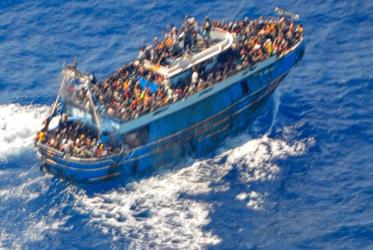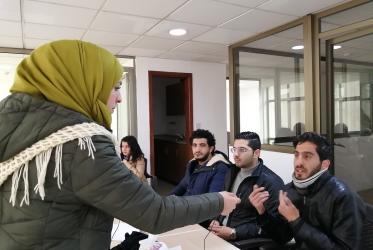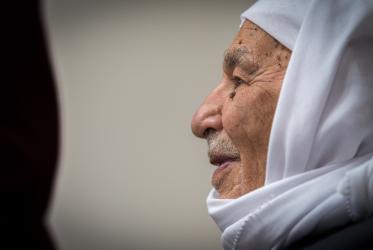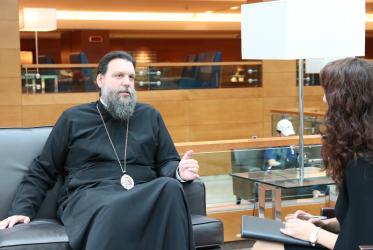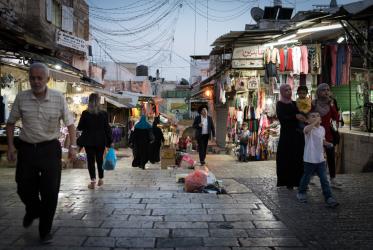Displaying 1 - 20 of 60
Are migrants seen and heard? Conference presses the question
19 October 2020
A faith-based, holistic approach to HIV and AIDS-care
13 March 2019
Fr Alexi - a peacemaker in Syria
21 December 2018
How can you help refugees?
11 October 2018
“Love will find a way”
23 August 2018
Creating a better future for Syrian-Armenian youth
29 March 2018
Forum strengthens ecumenical commitment to diakonia
12 October 2017
Conference explores Christian approach to borders
05 October 2017
WCC condemns terror attack on evacuees in Syria
16 April 2017
